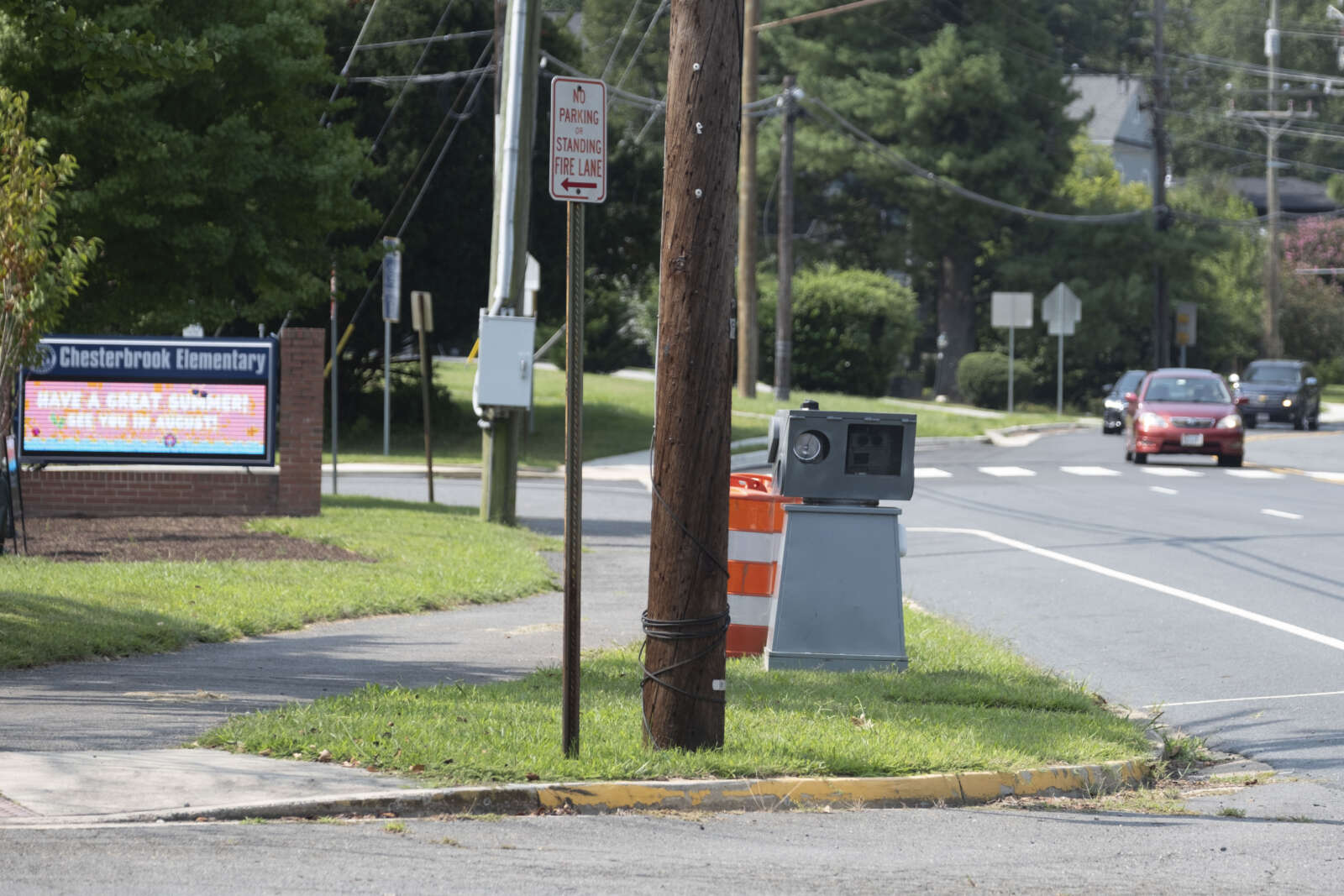
As the Virginia General Assembly reaches its deadline for legislators to file bills for the 2024 session, Fairfax County’s representatives hope to pass bills on rent gouging, campaign finance reform and opioid prevention in schools.
The General Assembly convened in Richmond last Wednesday (Jan. 10) for a 60-day session ending March 9. With Democrats controlling the House of Delegates and the Senate, lawmakers could see at least some of their proposals become law. Here are some notable measures put forward:
Local anti-rent gouging authority: SB 366 would allow any locality to adopt provisions that prevent landlords from significantly raising rents and require them to notify tenants two months before an increase. The bill, sponsored by Sen. Jennifer Boysko (D-33), would require notice and a public hearing prior to adopting any legislation.
Transportation
- Expanding the use of speed cameras: The identical bills HB 20 and HB 905 would allow local governments to install speed cameras in “any location deemed necessary.” Introduced by Del. Mike Jones (D-77) and Irene Shin (D-8), the legislation would allow for penalties up to $100.
- Funding for electric vehicle charging stations: Introduced by Sen. David Marsden (D-37), SB 457 would create a Driving Decarbonization Program and Fund to help developers cover some costs associated with installing electric vehicle charging stations.
- Towing fee regulations: SB 450, also from Marsden, tells the State Corporation Commission to analyze current regulations of towing fees “and identify policy options for the commission to assume all or part of such regulation.” The proposal requires the SCC to report its findings to the General Assembly by Nov. 30, 2024.
Special grand juries: Sponsored by Del. Karen Keys-Gamarra (D-7), HB 167 requires a circuit court to impanel a special grand jury when a law enforcement or correctional officer kills an unarmed person. The bill also directs the court to appoint a special prosecutor who can be present during an investigation and interrogate witnesses if requested by the special grand jury. Last year, a special grand jury indicted the Fairfax County police officer who fatally shot Timothy Johnson in Tysons.
Prohibited personal use of campaign funds: HB 40 “prohibits any person from converting contributions to a candidate or his campaign committee to personal use.” The bill from Del. Marcus Simon (D-53) lets any individual subject to the ban request an advisory opinion from the State Board of Elections. It advanced out of a subcommittee on Wednesday (Jan. 17) with amendments.
Education
- Tax to support schools: Sponsored by Sen. Jeremy McPike (D-29), SB 14 would authorize all counties and cities to impose an additional local sales and use tax of no more than 1% to fund the construction and renovations of schools.
- Naloxone policies and requirements: SB 387, sponsored by Sen. Stella Pekarsky (D-36), requires each local school board to develop plans and policies for every public elementary and secondary school relating to opioid overdose prevention and reversal.
Invasive plants: HB 47 would require all retail sellers to provide signage identifying invasive plant species. The bill, sponsored by Del. Holly Seibold (D-35), would require the signs to say, “Plant with caution: invasive plant species. May cause environmental harm. Ask about alternatives.”
The deadline for state legislators to file bills with the clerk is 3 p.m. today (Friday).
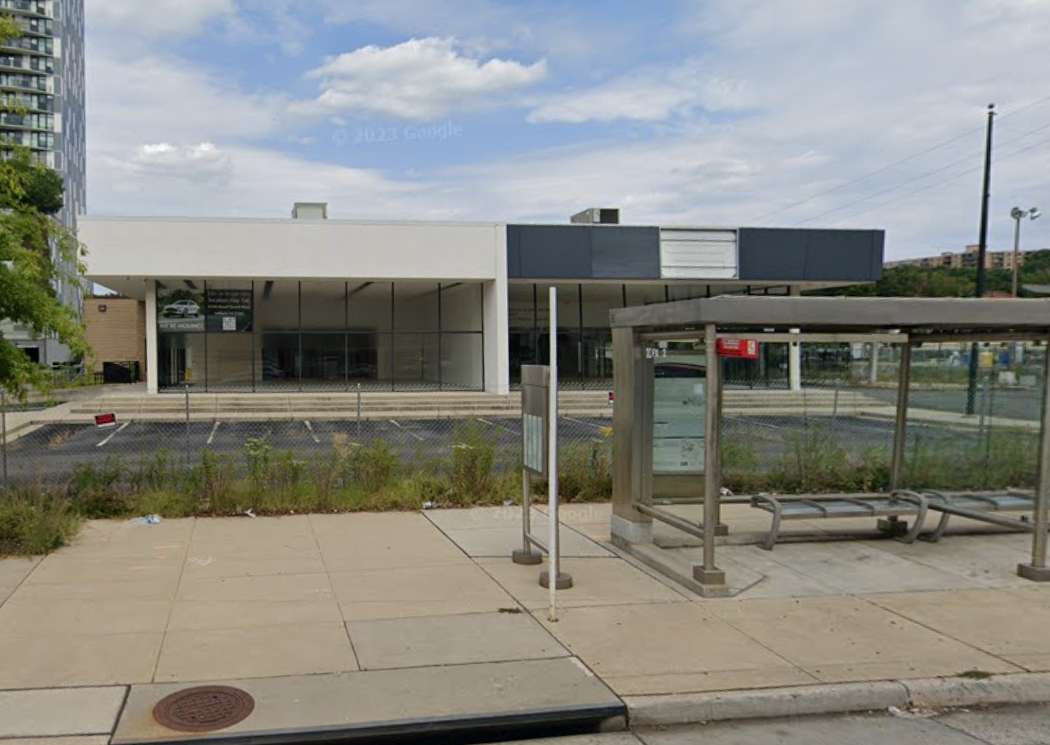
The proposal to permit a casino in Fairfax County has honed in on one specific site: a former Aston Martin and Bentley dealership in Tysons.
Site criteria for the potential gaming establishment emerged yesterday (Wednesday), when state Sen. Dave Marsden’s long-awaited/dreaded bill was officially published online, just two days before the Virginia General Assembly’s filing deadline for the 2024 session.
As first reported by NBC4, the legislation would add Fairfax County to the list of localities eligible for a casino as long as the facility is:
- Located within one-quarter of a mile of an existing station on the Metro Silver Line
- Part of a coordinated mixed-use project development
- Outside of the Dulles International Airport flight path
- Within two miles of a major shopping destination with at least 1.5 million square feet of gross building area
- Outside of the Capital Beltway (I-495)
Those conditions limit possible sites to Tysons, dropping Reston from consideration after residents there prepared to fight the incoming legislation.
However, Marsden confirmed to FFXnow that he plans to amend the bill, titled Senate Bill 675, to further narrow the proposed scope to the abandoned Exclusive Automotive Group lot at 8546 Leesburg Pike near the Spring Hill Metro station.
Marsden didn’t specify what criteria will come with the amendment, but he says it will be added before the bill is presented to a committee. The legislation was referred yesterday to the Senate Committee on General Laws and Technology, which hasn’t scheduled a meeting on it yet.
The site of a fire in April 2023, the dealership has been vacant since the company relocated its Aston Martin and Bentley franchises to a new showroom that opened in Ashburn in spring 2022.
The property was sold by the Cherner Development Group to Tysons Development LLC — a joint venture of the Clemente Development Company and Khaled Juffali Co. — for over $57 million on Feb. 4, 2020, per Fairfax County records. The sale involved multiple parcels totaling about 7.5 acres — all part of the planned View at Tysons development.
Approved by the county in 2019, The View at Tysons would transform the Route 7 and Tyco Road intersection with over 3 million square feet of mixed-use development, including the D.C. area’s tallest office tower and a performing arts center.
Marsden has said the casino could be part of an entertainment district that may also include an arts venue. He confirmed the project was proposed by Reston Station developer Comstock, which was previously reported to be pushing for a casino near the Wiehle Metro station.
“In my view, this casino is needed to ensure further revenue for Fairfax County to fund schools and other vital services due to the decline in commercial real estate revenue and increases in costs for Metro and other county obligations,” Marsden said, adding that broadening the commercial tax base would “take pressure off” of residential real estate and car taxes.
Local reactions to the possibility of a casino have generally ranged from skeptical to hostile. The McLean Citizens Association, which includes Tysons in its coverage area, sent a letter to state legislators last week opposing the impending bill, while Providence District Supervisor Dalia Palchik told FFXnow yesterday that there are still too many questions around where revenue would go and how the operator and site will be selected.
In addition to providing location criteria, SB 675 would require Fairfax County to consider a prospective operator’s labor practices, including payment of prevailing wages to construction contractors and hospitality workers and labor peace agreements with any unions. The operator would need to enter into an agreement with employee labor groups before it’s submitted to Virginia Lottery for approval.
If the bill passes the General Assembly and gets signed into law by Gov. Glenn Youngkin, Fairfax County voters would still have to approve a referendum to allow a casino. Virginia currently has five localities eligible for a casino, but Richmond may be removed from that list after voters rejected a referendum two times.
Image via Google Maps
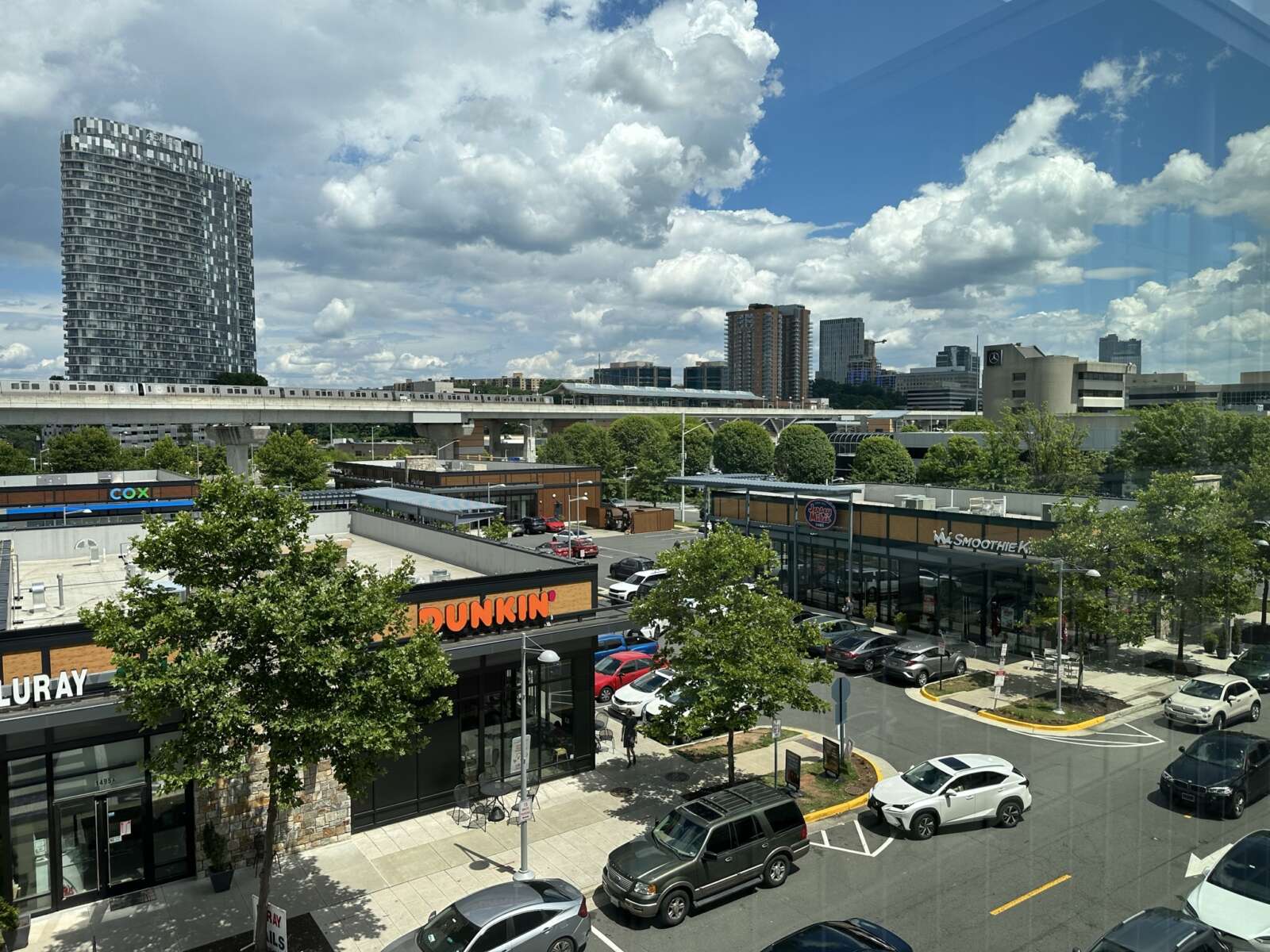
(Updated at 2:30 p.m.) The new, much-debated state bill to allow a casino in Fairfax County has arrived with some limited but critical changes from its previous iteration.
Though the bill doesn’t appear to be available online yet, NBC4 reports that state Sen. Dave Marsden (D-35) has filed legislation that would add Fairfax County to the small list of Virginia localities eligible for a casino.
According to NBC4, the bill closely resembles a proposal that Marsden submitted and quickly withdrew last year, but the new iteration includes even more specific criteria for the potential casino site:
The eligible host locality described in subdivision A 6 shall be limited to a proposed site for a casino gaming establishment that is (i) located within one-quarter of a mile of an existing station on the Metro Silver Line, (ii) part of a coordinated mixed-use project development, (iii) outside of the Dulles airport flight path, (iv) within two miles of a major shopping destination containing not less than 1.5 million square feet of gross building area, and (v) outside of the Interstate 495 Beltway.
The addition of proximity to a “major shopping destination” as a requirement narrows the possible locations down to Tysons, specifically a “defunct auto dealership on Route 7,” Marsden told NBC4.
That rules out the possibility of a Reston casino. Patch reported in October that Reston Station developer Comstock was hoping to build a casino near the Wiehle Metro station, a proposal that drew strong objections from Reston Association and the general community.
Arguing that Fairfax County needs to diversify its commercial tax base, Marsden has said he sees Tysons as a more appropriate site, envisioning the casino as part of an entertainment district that could include a performing arts venue and a conference center.
In 2022, Comstock sought an amendment to Fairfax County’s Comprehensive Plan that would allow a residential and retail development to replace the Koons Chevy and Chrysler dealerships at 2000 and 2050 Chain Bridge Road near Route 7. The proposal didn’t advance, since county planners determined that an amendment wouldn’t be needed.
It’s unclear if that location is the one that Marsden has in mind, since those dealerships are still in operation. The Priority and Sheehy auto dealerships on Leesburg Pike (Route 7) near the Spring Hill Metro station closed up shop last summer, potentially setting the stage for redevelopment.
NBC4 reports that an unidentified, “interested” developer would like to build “a casino paired with a large convention center, hotels, restaurants, office space and residences.”
The Tysons Community Alliance, which released a strategic plan for Tysons in December that includes increased capacity for large gatherings as a priority, says it has no comment on Marsden’s casino proposal.
Hunter Mill District Supervisor Walter Alcorn, whose district includes the Koons dealership site, has expressed opposition to a casino on Metro’s Silver Line, though his focus in the past has been on Reston in light of Comstock’s rumored interest.
Providence District Supervisor Dalia Palchik, who represents other parts of Tysons, says her office hasn’t received any project proposals. In the fall, she told FFXnow she’s open to discussing any proposal brought to her office but was skeptical a casino will materialize, since even if Marsden’s bill is signed into law, it would have to be approved by voters in a referendum.
In a new statement, Palchik says she still has reservations about the proposal, though she supports “increasing local authority in both land use policy and revenue diversification.”
“There are still too many questions that exist around where the income would go and how a location and provider would be selected,” she said. “I have not received any land use proposals, and the site selection and land use processes are not something that are decided at the General Assembly level. This bill was also not requested at the county level. We know that the market has shifted and we continue to review the big picture for the future of commercial and residential real estate, but this specific proposal has not yet provided the necessary data, impact, or outreach to our offices nor to the community.”
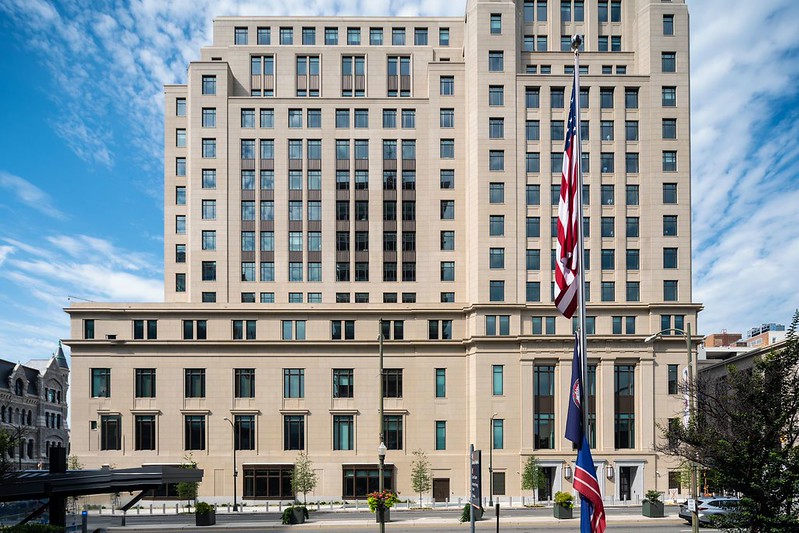
Opposition continues to mount against the possibility of a casino in Fairfax County.
With the Virginia General Assembly kicking off its 2024 legislative session tomorrow, the McLean Citizens Association has come out against a bill expected to be filed soon by state Sen. Dave Marsden, who has proposed adding Fairfax County to the list of localities where a gaming casino could be permitted.
Described as an “unofficial town council” for residents of the greater McLean area, the MCA’s board of directors voted last week to send a letter to the county’s delegates and state senators expressing its opposition to the prospective bill, a stance also adopted by Reston Association.
“Many of our members and residents have contacted MCA Board members to express their opposition to allowing casinos to be operated in Fairfax County,” MCA President Linda Walsh said in a statement. “MCA is watching this closely.”
Sent on Monday (Jan. 8), the letter acknowledges that the MCA can’t comment in detail on the legislation, since it hasn’t been made public yet.
However, developer Comstock is reportedly seeking to build a casino near the Wiehle Metro station in Reston. Marsden has argued that Tysons would be a better fit, suggesting the facility could be part of an entertainment district with a performing arts venue and a conference center.
Citing a need for the county to diversify its commercial tax base with the office market still struggling to recover from the pandemic, Marsden submitted legislation last year that would’ve opened the door for a casino in Fairfax County along Metro’s Silver Line. The bill was quickly withdrawn.
Though he doesn’t represent Reston or Tysons, Marsden serves on the senate’s finance and appropriations committee, which handles budget and tax-related legislation. It will be chaired this year by Sen. L. Louise Lucas (D-18).
Marsden told FFXnow on Dec. 28 that his new bill will be filed within “the next two weeks.” The filing deadline is Jan. 19.
Even if the legislation passes through the General Assembly and gets signed into law by Gov. Glenn Youngkin, a voter referendum would still be required to officially authorize a casino in Fairfax County. The establishments have only been approved in five Virginia cities.
MCA’s full letter to the county’s General Assembly delegation is below:
Dear Fairfax County Delegation to the State Senate and House of Delegates:
The McLean Citizens Association (“MCA”) has recently become aware of intentions to introduce legislation in the upcoming session of the Virginia Assembly that would amend the Code of Virginia, Title 58.1 Chapter 41 in a way that would allow a gaming casino to operate in Fairfax County. Among other suggested sites, proponents of this effort have named Tysons, the majority of which lies within the MCA’s general membership area, as a potential location for a casino.
Since the bill has not yet been submitted in the Assembly, MCA is not able to comment on it in detail at this time. However, many members of MCA are concerned about this initiative. Accordingly, the MCA Board has voted to express its opposition to legislation that would allow a gaming casino in Fairfax County.
Regards,
Linda Walsh
MCA President
Photo via Virginia House of Delegates/Flickr

State Sen. Dave Marsden (D-35) has yet to unveil his planned bill to authorize a casino in Fairfax County, but Reston Association is going all in to prevent it from becoming law.
Following up on a formal statement of opposition approved in October by the board of directors, RA CEO Mac Cummins released a letter to the organization’s members yesterday pledging to take “decisive action” to block the possibility of a casino, which he characterized as a potential threat to “the residential character of our community.”
“We have decided to actively oppose the proposed casino and encourage our legislators to oppose this proposal as well,” Cummins wrote. “Our primary goal will be to preserve the quality of life in Reston for the over 60,000 people who call Reston home.”
Marsden, whose district encompasses Annandale, Springfield and George Mason University, joined Del. Wren Williams last year to introduce legislation that would’ve added Fairfax County to the small list of localities in Virginia eligible for a casino.
The bill specifically required the casino to be built in a mixed-use development that’s located outside the Capital Beltway and within a quarter-mile of a Silver Line Metro station — criteria that limited potential sites to Tysons, Reston and Herndon.
While the identical bills were withdrawn just days after being introduced, word that Marsden planned to revive the proposal, if reelected, emerged in September. Patch reported that Reston Station developer Comstock is seeking to build a casino near the Wiehle Metro station, though Marsden has argued it would be a better fit for Tysons as part of an entertainment district.
“That’s becoming Fairfax County’s downtown, and we want to locate it on the Silver Line because that’s what the Silver Line was built for,” Marsden told FFXnow in the fall, noting that his goal is to give the county the option to have a casino.
The ultimate decision would lie with Fairfax County voters. Only five Virginia localities have approved casinos after voters in Richmond shot down a referendum twice, including one on the ballot in November, leading its backers to concede defeat.
Expected to be filed within the next week, Marsden’s proposal for the upcoming General Assembly session will be different from the previous bill, possibly calling for a performance space and conference center as part of the envisioned “entertainment district.”
Increased capacity for large gatherings was among the needs identified by the Tysons Strategic Plan released in December by the Tysons Community Alliance, which hasn’t taken an official stance on the idea of a casino.
Even without the official text of Marsden’s bill available, Cummins said in his letter that he will advocate against the legislation at the Fairfax County General Assembly delegation’s pre-2024 session public hearing tomorrow (Saturday). He and some RA board members also plan to make their case in Richmond after the session starts next Wednesday, Jan. 10.
Cummins encouraged RA members “to join our efforts to safeguard our vibrant future,” stating that the organization will provide updates on its website. His full message to Reston residents is below. Read More
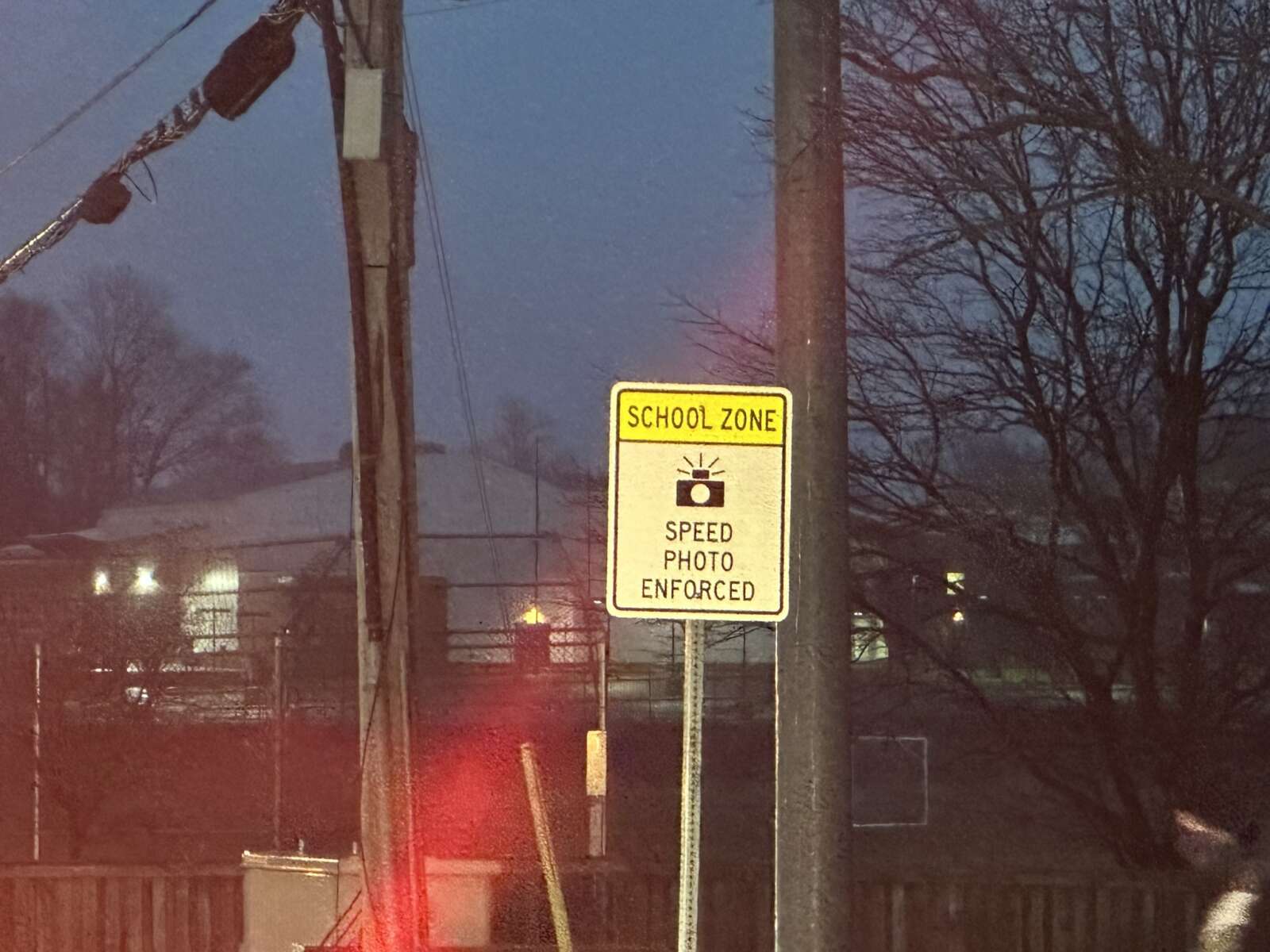
When they reconvene this month, Virginia lawmakers will consider a proposal to allow local governments to install speed cameras wherever they deem them necessary, with penalties of up to $100 for violations.
Bill patron Del.-elect Mike Jones, D-Richmond, said the legislation is intended to increase speed enforcement and reduce the number of traffic fatalities.
“It gives localities the decision of whether they want to do it or not,” said Jones. “So it’s not a ‘shall’ — every locality will have it — but for the ones that are concerned with this, it would help them out.”
State law currently allows local governments to install speed cameras in work and school zones as a way to drivers to go slower around children and construction workers. Jones’ bill would go further, allowing their placement in “any location deemed necessary” by local governments.
However, the use of more cameras to enforce speed laws has previously sparked controversy over privacy and public perceptions that the technology is just another way for a locality to raise revenue.
In November, amid a Frederick County debate, outgoing Supervisor Shawn Graber told the Mercury that “there should never be a time when a locality tries to simply put something in effect to make money from someone else’s misdoing.”
Jones said he understands the concerns, but argued people are asking for safer streets and safer neighborhoods.
“There’s not enough police for them and/or they don’t respond to neighborhoods simply because of numbers,” said Jones. “I understand the concern for the overpolicing, I get that. I get that as an African American male, I get that as pastor of an African American church, a Black legislator that represented predominantly Black and brown people. I hear that, but the reality is this: People aren’t dying in a lot of these different neighborhoods; where they’re literally dying is in mine.”
Virginia Department of Motor Vehicles data found that last year, 20% of the 122,434 crashes in the state were speed related, a 1% increase over the previous year. Virginia Department of Transportation crash data also shows that between 2018 and 2022, the annual number of traffic fatalities increased from 819 to 1,005.
The DMV said that on average, 2.8 lives are lost and 163 people injured every day because of traffic crashes.
Rob Billington, a spokesman for the Virginia Municipal League, which represents city and town governments in the commonwealth, said the league supports letting local governments expand the use of speed cameras on all roads at all times. He said traditionally VML has supported local flexibility, and it sees Jones’ bill as providing that. Read More
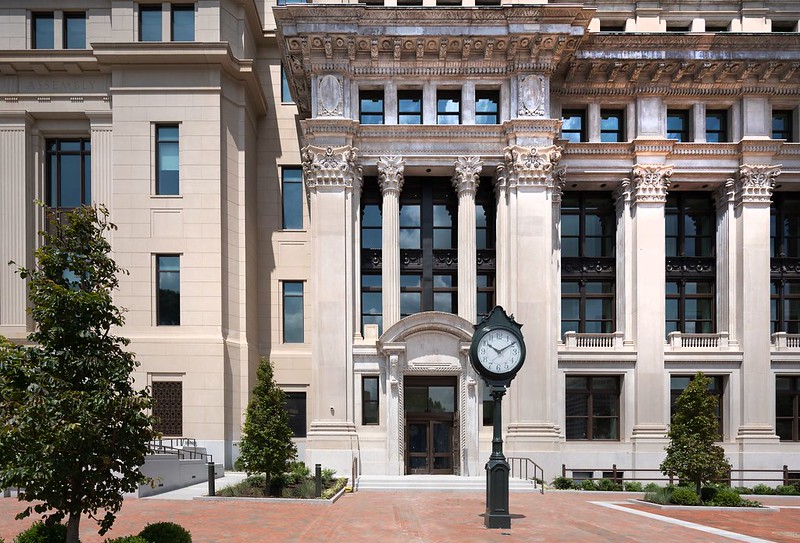
At the halfway point of his administration, Virginia Gov. Glenn Youngkin unveiled a budget proposal that calls for significant income tax cuts, increases in state sales and use tax — and a push to get rid of the car tax, which the Republican called “the single most hated tax” in Virginia.
“The car tax belongs in the trash can and not in your mailbox,” he said.
Speaking to the state’s joint money committees Wednesday morning, Youngkin reiterated his familiar themes that Virginia must take action to reverse ongoing population losses to other states and reduce residents’ tax burdens.
“Across the country today, there are winning states and there are losing states,” he said. “Virginia must compete even harder.”
But the governor’s speech took a less political tone than earlier addresses to the state’s legislative budget architects, offering fewer criticisms of prior administrations and acknowledging that Virginia government remains divided after Democrats narrowly won control of both chambers of the legislature this November. That outcome dampened Youngkin’s prospects for a presidential run and will force him to work across the aisle to achieve his key priorities.
Because Virginia operates on a two-year budget that is amended annually, the “Unleashing Opportunity” budget presented by Youngkin Wednesday represents the governor’s first crack at crafting a state spending plan from whole cloth. The last two-year budget, which was passed in 2022, was based on a plan from outgoing Democratic Gov. Ralph Northam.
With power divided between Democrats and Republicans in Richmond and historic state surpluses fueled by pandemic-era relief spending, the past few years have seen unusual levels of contention over the state budget. Amendments to the spending plan, ordinarily passed at the time the General Assembly adjourns in late February or early March, took until September this year to come to fruition as the parties bickered.
“I would ask us to deliver a budget on time when you adjourn sine die in March,” Youngkin told the money committees on Wednesday, referring to the final adjournment of the legislative session. “Virginians deserve it, and I know we can do it.”
This year, lawmakers will have less money at their disposal, with pandemic-era infusions of cash at an end and state economic officials projecting a mild recession beginning in the last quarter of fiscal year 2024.
The “overwhelming consensus” of state leaders, said Youngkin, was that in developing the budget, “we should build in caution.”
Democrats have already signaled concerns with the governor’s spending plan — and some surprise.
“I heard the governor say this was halftime. And he came back out as a Democrat, a lot of tax increases,” wisecracked incoming House Speaker Don Scott, D-Portsmouth, in an exchange with Virginia Secretary of Finance Stephen Cummings.
Senate Democrats on Wednesday afternoon issued a statement calling the governor’s budget “absolutely disgraceful” and “a slap in the face of our most vulnerable individuals.”
“We are smart enough and bold enough to know that his speech was the highlight reel and that he omitted the dirty details of his plan,” the caucus wrote. “Governor Youngkin believes that ensuring more tax cuts for wealthier individuals is most beneficial for low income individuals in our commonwealth.”
The proposal put forward by the governor Wednesday marks only the beginning of the state’s budget season. When the General Assembly convenes Jan. 10, both chambers will have a chance to modify Youngkin’s budget, removing parts they don’t like and accepting or strengthening those they do. The House and Senate will then need to reconcile their two versions of the plan — a process that historically has occurred behind closed doors through the legislature’s opaque conference committee system — and send it to the governor for his review.
“While we appreciate Governor Youngkin for sharing his budgetary vision today, it is imperative that we have a thorough examination of his proposal,” said Del. Luke Torian, D-Prince William, the incoming chair of the House Appropriations Committee. “This is the starting point to construct a budget that not only reflects our dedication, but also secures prosperity and fairness for every resident in the commonwealth.”
Here’s some of what Youngkin is proposing at the starting line. Read More
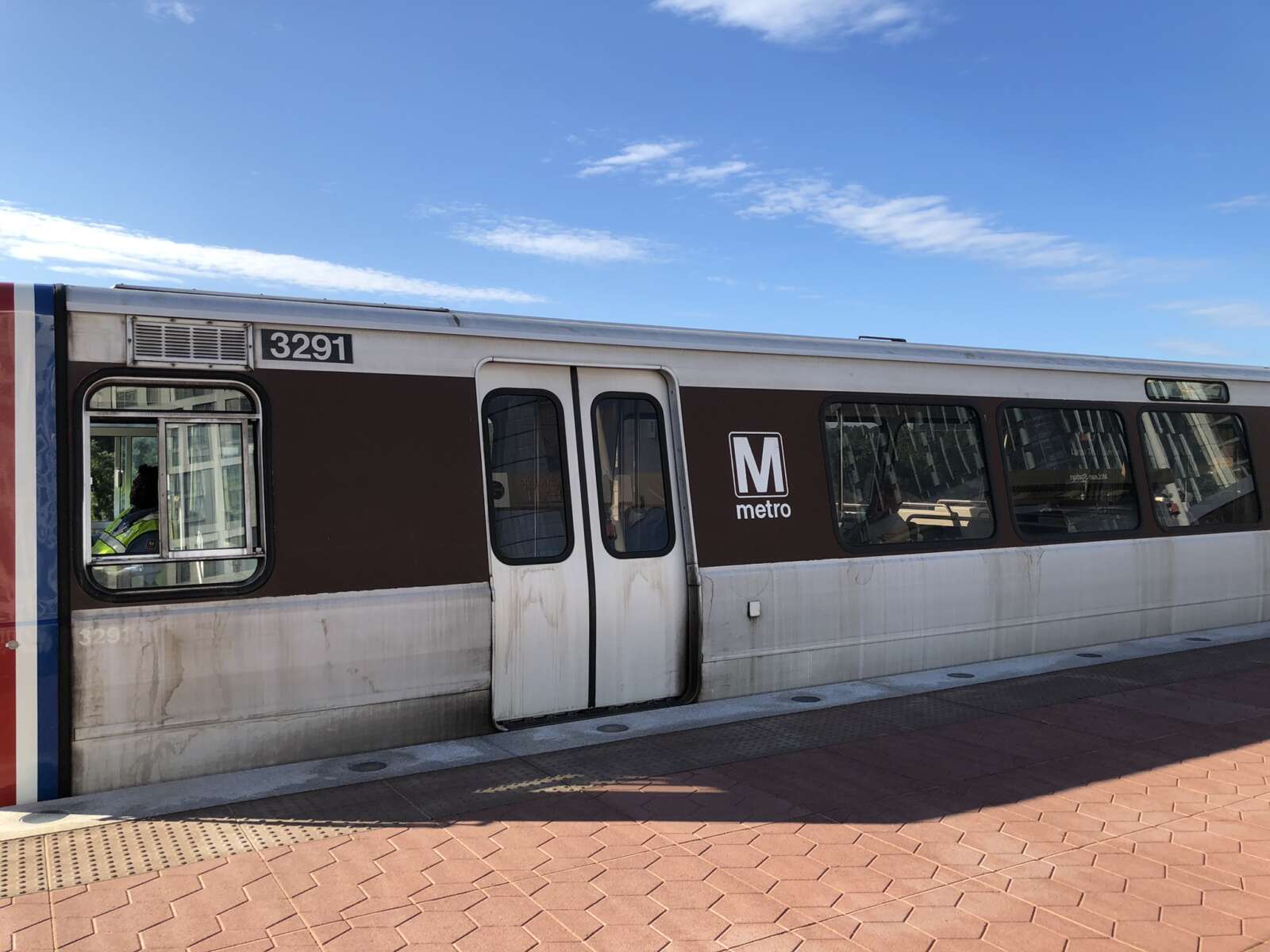
Local and state officials in Virginia say the path to dig Metro out of its looming $750 million deficit is uncertain — but action is necessary to avoid the significant service cuts, systemwide fare hikes, layoffs and station closures laid out in the transit agency’s newly proposed budget.
Leaders in Fairfax County — which already faces lean economic times — say they don’t plan to offer up additional funds unless jurisdictional and federal partners can throw some more skin into the game.
“What we have said is there’s absolutely no way that local governments can bear the responsibility of that entire bill,” Fairfax County Board of Supervisors Chairman Jeff McKay told FFXnow in an interview before the Washington Metropolitan Area Transit Authority released its official budget proposal.
WMATA has been sounding the alarm on its projected budget shortfall since June.
“What I think you’re going to see happen is there’s going to be some matching and some partnerships,” McKay said.
In a first glimpse of the proposed budget, which was released last Tuesday (Dec. 12), Metro General Manager Randy Clarke laid out what would happen if Metro can’t secure local, state and federal funds to address a problem that has been coalescing for years.
“Metro is facing an unprecedented, existential crisis that requires our region to rally together if we want to avoid the catastrophic impacts this budget would have on our region,” he said.
The system would close at 10 p.m. every day and shutter 10 low-ridership stations. Silver Line trains would turn back at Stadium-Armory, with trains running between Ashburn and that station. Similar reduced turn-backs would take place on the Red Line.
Trains would run every 15 minutes for most stations — a 17 to 67% increase in wait-times across the board on weekdays — and every 20 minutes on weekends for most stations — a 40 to 70% increase. Fares would also jump by 20%.
Among other cuts and more than 2,000 layoffs, Metro would use $193 million from its capital funds to cover operating maintenance expenses — essentially borrowing against the future.
“Such a large transfer of capital funds to operating expenses puts the system’s state of good repair, including safety and reliability, at risk, and threatens to delay, defer, decrease, or cancel several long-term projects to modernize the system,” WMATA cautioned in a press release.
But it’s unclear when and if local and state bodies will offer up enough funding. The subsidized system relies on annual subsidies from Maryland, Virginia and D.C., as well as fare revenue and federal dollars. The fiscal year 2025 budget begins July 1, 2024.
Metro needs subsidy increases of $180 million from Virginia, which has already allocated $348 million. Similar increases are sought from other jurisdictions. The upcoming General Assembly session will determine how much the state is willing to put down to assuage the bleeding after federal COVID-19 funding ends for the system. Read More

The Virginia Board of Education is asking the General Assembly to develop a plan for changing the state’s existing school funding formula to help divisions strapped for money but isn’t backing a proposal to remove a cap that limits the number of support positions the state will fund.
According to an earlier report by the Joint Legislative Audit and Review Commission, which conducts analysis and provides oversight of state agencies on behalf of the General Assembly, changing the formula could help address the underfunding of schools.
“We don’t have a good school financing system in Virginia. It is inequitable, and it’s outdated,” said Board of Education member Andy Rotherham during a special meeting Tuesday.
Virginia’s funding formula establishes how much state and local governments must provide to meet the state’s Standards of Quality (SOQ), the requirements that Virginia public schools must meet. The board reviews those standards every two years and proposes changes as necessary, while the General Assembly makes decisions about how much funding divisions should get.
In addition to backing a new funding formula, the board on Tuesday also urged the General Assembly to provide flexible funding for innovative approaches to literacy and math education, require high school students to have an opportunity to make their own academic and career plans and provide funding for a statewide individualized education program system.
Although board members noted that a decision by the General Assembly to provide divisions more flexible funds could allow them to address a range of different needs, member Anne Holton pushed unsuccessfully for the body to recommend a minimum funding commitment from lawmakers.
“Many divisions, the ones that can afford to fund way over the minimum SOQs … their kids are doing okay,” Holton said. “But the divisions that can’t afford to go way above the state and dated minimum SOQs don’t fund over it, and their kids are not doing okay.”
Funding formula
JLARC this summer recommended the General Assembly consider changing the funding formula after finding that Virginia schools receive 14% less state funding than the 50-state average, equal to roughly $1,900 less per student.
Virginia’s current SOQ formula determines funding for divisions by calculating the number of staff they need and then the cost of those staff.
While the Virginia Department of Education said in a Dec. 12 report that the approach worked historically, it said school divisions today are “faced with a myriad of unique student needs.”
“Funding should be allocated by student, recognizing the unique needs of each student rather than using a formula driven by staffing ratios,” the report stated.
On Tuesday, in line with that suggestion, the board recommended policymakers “investigate, model and develop a plan to move to a student-weighted funding formula for purposes of determining the required state and local shares of cost for the Standards of Quality.” Read More
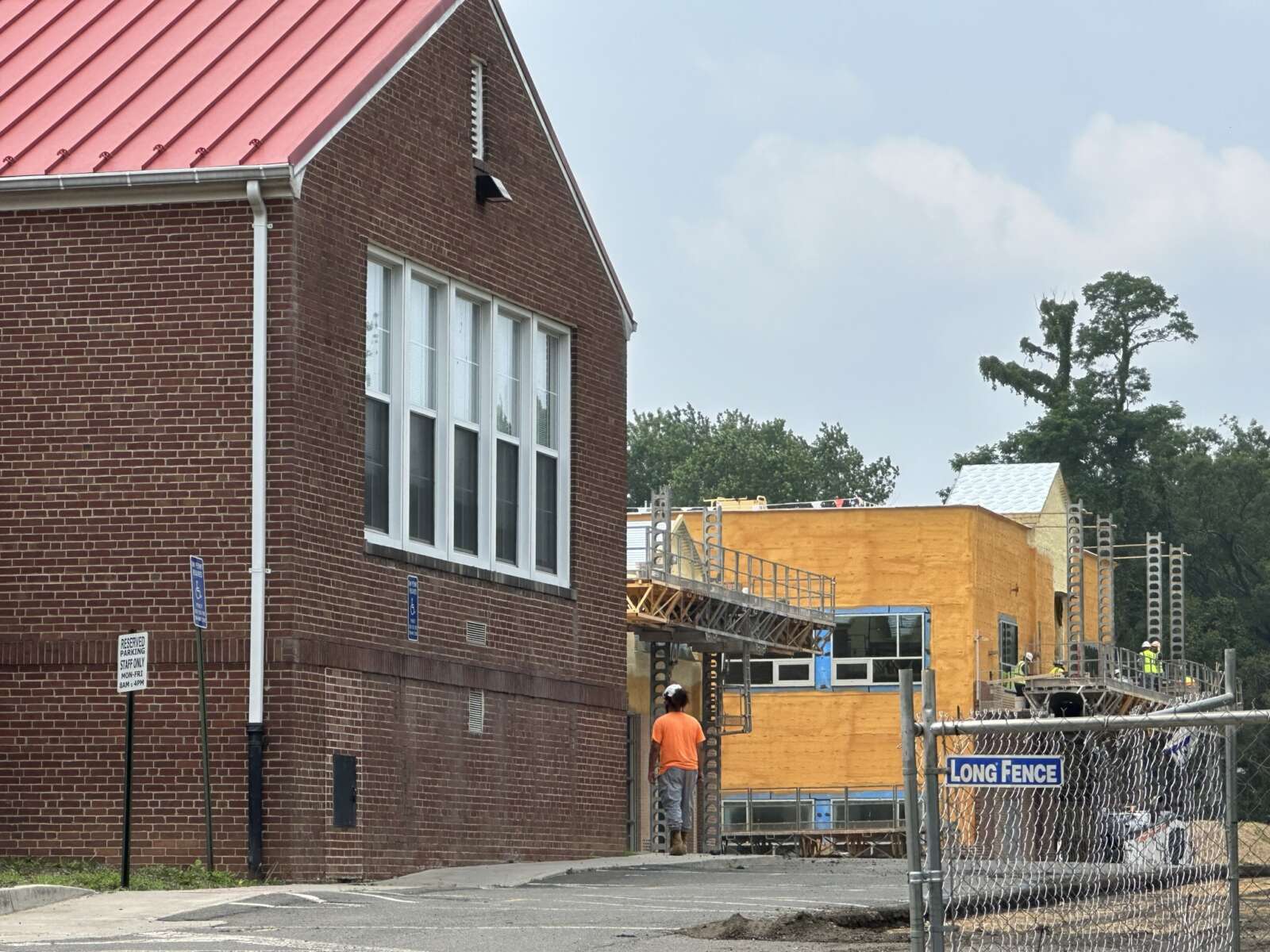
Democrats are again pushing for legislation that would allow local governments to hold referenda on increasing their sales and use tax to pay for school capital projects such as construction and renovations.
The party hopes the effort, which has been tried twice before but defeated by Republicans, will be successful now that Democrats are set to control both the House of Delegates and the Senate following the November elections.
“We think with the change in the dynamics in the House that this bill has a very good chance,” said Sen. Jeremy McPike, D-Prince William, adding that a similar version of the bill passed with bipartisan support last year in the Democratic-controlled Senate before dying in the House.
Under current law, only nine localities can impose a 1% sales tax to fund school construction and renovation projects. They are the counties of Charlotte, Gloucester, Halifax, Henry, Mecklenburg, Northampton, Patrick and Pittsylvania and the city of Danville.
Local governments have control over adjustments to their property tax rates — but aren’t allowed to change the sales tax rate without explicit permission from the General Assembly.
In 2021, Virginia invested nearly $1.3 billion into programs distributing grants and loans for school construction after a survey found over half of Virginia’s schools are more than 50 years old, with replacement costs for each in the millions.
“It’s really about empowering localities to make their own decisions about how they want to fund schools, and this is a new tool in the toolbox,” McPike said.
Lawmakers have already set a “precedent of permitting localities to impose a sales tax increase for school capital projects through the referendum process,” he said, “but what the bill would do is essentially allow all localities to make that choice and figure out if that’s the right fit for their community and their community needs.”
Former Republican Del. James Edmunds, R-Halifax, introduced a bill last session to add Prince Edward County to the list of localities allowed to impose a 1% sales tax for school capital projects. However, a House Finance subcommittee failed to hear the proposal.
In 2019, Edmunds successfully carried legislation to add Halifax County to the list of permitted localities.
Republicans have been reluctant to support changes to the law that could allow the raising of taxes, outgoing Sen. Tommy Norment, R-Williamsburg, told the Mercury last session.
If the legislation can make it out of both chambers, the bills will still require approval by Republican Gov. Glenn Youngkin, who could sign them into law, veto them or suggest changes.
This article was reported and written by the Virginia Mercury, and has been reprinted under a Creative Commons license.

